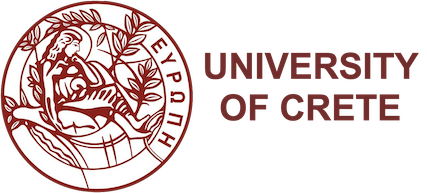Children’s best interests must be a primary consideration when they are involved in criminal proceedings. However, children victims and witnesses of abuse are often re-victimized by justice systems that are not adapted to their rights and needs. Poor implementation of the forensic investigation tackles the welfare of a child due to the lack of capacity of legal and justice professionals as well as victims’ support services, regarding the forensic interview.
The aim of the 2-year ENCLAVE project, funded by EC Justice Programme, is to foster impactful changes in criminal proceedings so as to introduce and mainstream an effective and coherent implementation of the protocol for forensic interview for child abuse to prevent repeated victimization, intimidation and retaliation connected with violence. The overall goal of ENCLAVE is to boost the implementation of a more appropriate and victim-sensitive approach within criminal proceedings tailored to the particular needs of children victims and witnesses of abuse.
The ENCLAVE team brings together academia, professionals and experts in fields of criminology and gender based violence from Belgium, Estonia, Greece, Italy and Spain to increase the capacity of legal and justice professionals on the application of the protocol of forensic interview with child victims and witnesses of abuse, and to advocate for compulsory capacity building for corresponding professionals involved in criminal proceedings with regards to child abuse.
The objectives of ENCLAVE are:
- Increasing the capacity and knowledge of legal and justice professionals in EU civil, criminal and fundamental rights instruments addressed to children victims or witnesses of abuse.
- Increasing the capacity of victims’ support organizations, especially on the implementation of the and its added value in their practice (implementation of protocol for forensic interview for child abuse).
- Getting professionals of different disciplines working with children victims of abuse (legal and justice professionals and staff in victim support organizations) familiar on mutual collaboration regarding the protocol for forensic interview on child abuse, aiming to maximize the mental welfare of children.
- Maximizing the prevention of re-victimization and re-traumatization of children victims and witnesses of abuse.
- Improving mutual understanding and trust between legal and justice professionals in cross-border judicial co-operation through mutual training and knowledge.
- Communicating the project outcomes and activities among target groups/beneficiaries (victims support organizations and units, legal professionals, etc.), other stakeholders (national and European policy makers) and the general public (national and European levels), and update existing protocols for forensic interview and/or foster the development at the absence of use
Project partners
Project outputs
Identification and collection of good practices and malpractices in the participating countries and the EU with regards to forensic interviews and criminal procedures. Good practice protocol including practical advice and applied solutions on procedures as well as on the minimum standards in procedural, operational and assistance terms.
Comprehensive transnational comparative report as well as Policy Recommendations will be developed to ensure proper implementation of forensic interview procedures as well as of the Directive 2012/29/EU in the participating countries.
Report about training needs of criminal justice & legal professionals (and forensic interviewers if existing) in the participating countries.
A comprehensive training set of materials on the practical aspects & tips on the application of legal framework concerning the forensic interview procedure for child victims and witnesses of abuse, relevant for the whole EU and in line with Directive 2012/29/EU.
Database of organizations providing counselling support to children victims and witnesses of abuse.
Guidelines on how to support and provide support to children victims and witnesses of abuse and their families during the criminal procedures.










